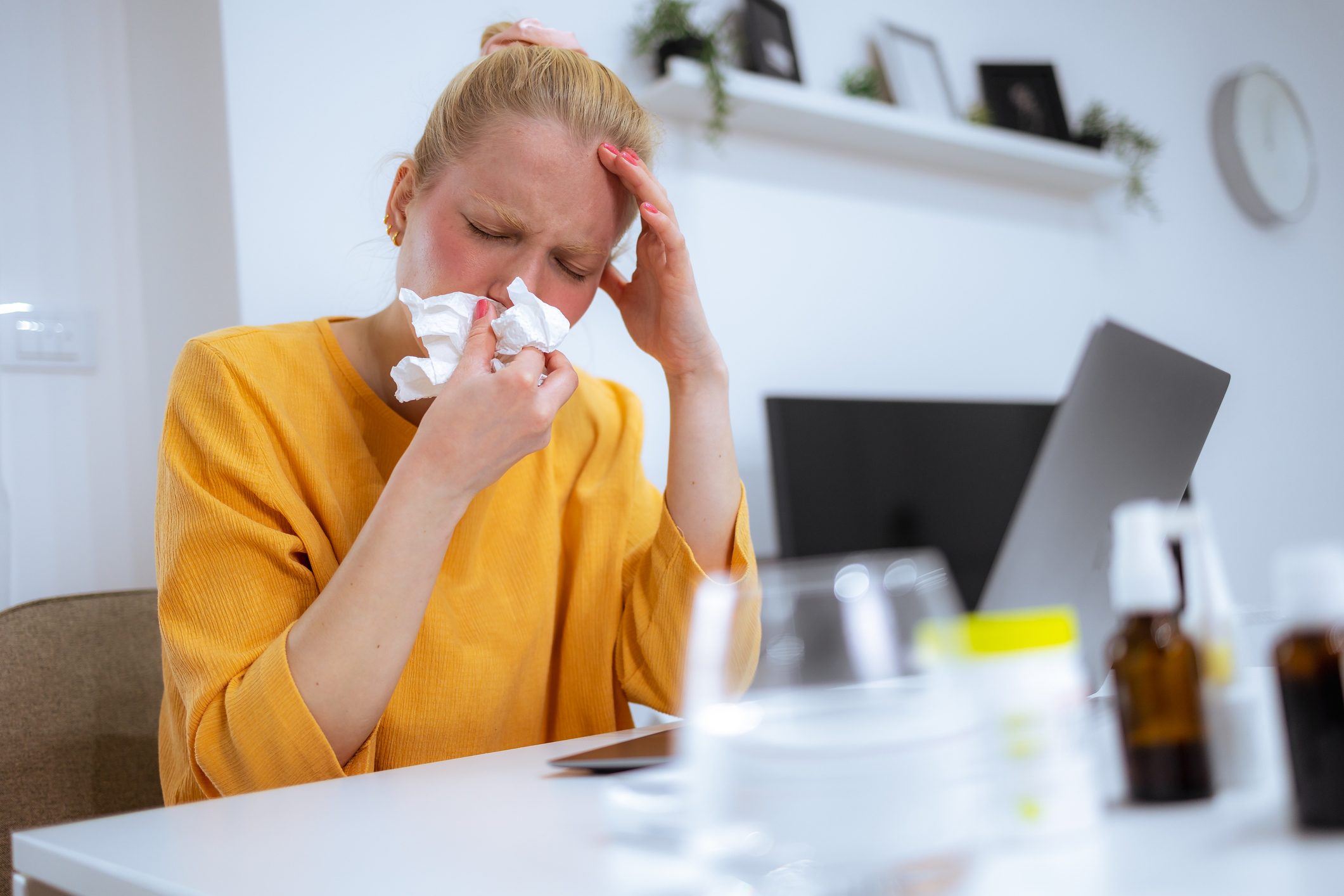Get Easy Health Digest™ in your inbox and don’t miss a thing when you subscribe today. Plus, get the free bonus report, Mother Nature’s Tips, Tricks and Remedies for Cholesterol, Blood Pressure & Blood Sugar as my way of saying welcome to the community!
What are nasal polyps, why they come back and what to do

Do you live with seemingly never-ending nasal congestion and recurrent sinus infections?
Maybe it feels as if you just don’t get enough air through your nose each time you breathe… Or you might have noticed that your sense of smell or taste just isn’t what it used to be.
If so, you might be suffering from nasal polyps.
The good news is that while these growths inside the nasal passages are common, affecting up to 40 percent of the general population, they are also benign — meaning they are non-cancerous.
Even better, not only can your doctor offer options to get rid of these polyps, but there are also things you can do to keep it that way.
Here are the answers to help you figure out whether or not you have nasal polyps and what you can do about them.
What causes nasal polyps?
Nasal polyps can occur anywhere within your nose or sinus passages. Made of fibrin (the same enzyme that causes blood clotting and cardiovascular issues), nasal polyps are thought to be caused by chronic inflammation. Polyps can be small and cause no symptoms or large enough to block your sinus passages.
You’re more likely to end up with nasal polyps if you have:
- Chronic sinusitis
- Asthma
- Allergies
- Certain immune disorders
- Aspirin sensitivity
- Dental infections
- Low vitamin D levels
While people typically develop nasal polyps in their 30s and 40s, they do become more common as you age.
Nasal polyp symptoms
The larger they get, the more likely nasal polyps are to cause issues. Common symptoms of polyps in your sinus passages include:
- A stuffy or runny nose
- Nosebleeds
- Pressure in your sinus cavities
- Headaches
- Loss of smell or taste
- Snoring
- Post-nasal drip (a feeling like mucus is draining down your throat)
Polyps that block your sinus passages can cause:
- An increase in asthma attacks
- Chronic sinus infections
- Problems breathing
- Sleep apnea issues
Nasal polyp diagnosis and treatment
To determine if you have nasal polyps, your doctor will use a thin, tube-like scope to look inside your nose. This is called a nasal endoscopy.
For more complicated issues, or if the polyps are deeper in your sinus passages, a CTI or MRI may also be ordered.
Medical treatment for nasal polyps involves medication or surgery.
Prescription medications used for polyps include steroid nasal sprays to reduce polyp size and manage symptoms and oral steroids to shrink polyps and improve symptoms – especially sense of smell.
If medications don’t work or aren’t an option due to the size of your polyps, your doctor may recommend surgery.
However, it’s important to note that, even with surgery, nasal polyps are likely to come back.
In fact, one study that followed patients for 12 years after polyp surgery found that approximately 37 percent required additional surgery due to polyp return. A second study noted that 40 percent of participants suffered from nasal polyp re-growth within just 18 months of initial surgery.
Two ways to reduce the risk they’ll return
Surgery is a big undertaking for something that could come back. But removing them could provide a fresh start to put together a plan to make their return less likely.
Since low vitamin D levels are associated with nasal polyps, increasing levels could help…
The results of a triple-blinded placebo-controlled clinical trial, in which participants were deprived of their routine medical therapies, found vitamin D supplementation at 4000 IU daily reduced the occurrence of polyps returning following sinus surgery.
The fact that vitamin D has potent inflammatory properties and inflammation is associated with nasal polyps, could be the simple answer why.
Another option is natto, a traditional Japanese food made from fermented soybeans. It contains an enzyme called nattokinase that in experiments was found to dissolve fibrin, an insoluble protein that can contribute to blood clots.
Since nasal polyps are also made of fibrin, researchers at Fukai University in Japan incubated nasal polyps in nattokinase — causing them to dissolve.
As a bonus, when the researchers tested the effects of nattokinase on the nasal discharge of patients with chronic sinus problems, they found that the enzyme significantly reduced mucus viscosity.
In other words, nattokinase thinned the mucus to allow blocked sinuses to drain.
Natto, fermented soybeans, can be found at most Asian markets. However, if you don’t enjoy the taste or texture of natto (many Americans don’t), nattokinase is available in supplements.
If you’re taking blood thinners, be sure to talk to your doctor before adding natto or nattokinase to your routine. Otherwise, it could be the breath of fresh air you’ve been looking for.
Editor’s note: Have you heard of EDTA chelation therapy? It was developed originally to remove lead and other contaminants, including heavy metals, from the body. Its uses now run the gamut from varicose veins to circulation. Click here to discover Chelation: Natural Miracle for Protecting Your Heart and Enhancing Your Health!
Sources:
Nasal polyps: Unassuming growths with a powerful effect – Mayo Clinic
Nasal polyps – Mayo Clinic
Nasal Polyps – American Academy of Allergy Asthma & Immunology
Nasal Polyps – Cleveland Clinic














